Speakers
Click en la fotografía para leer su biografía
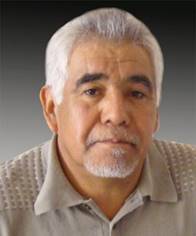
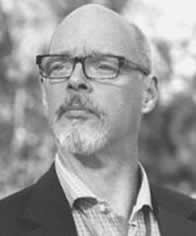
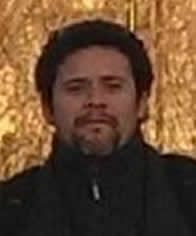
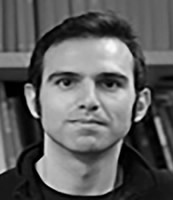
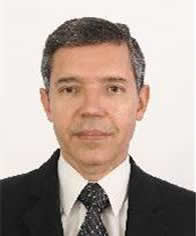
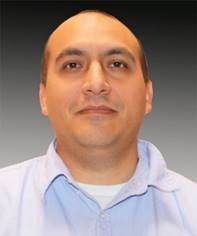
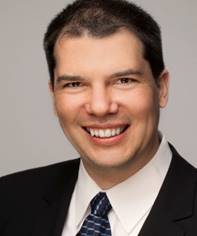
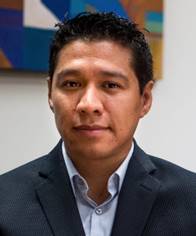
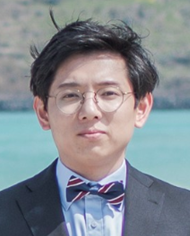
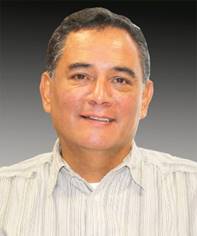
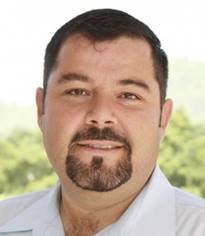
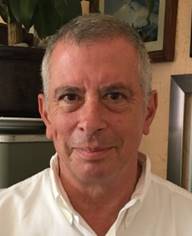
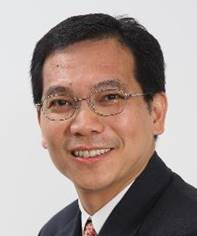
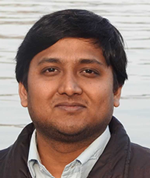
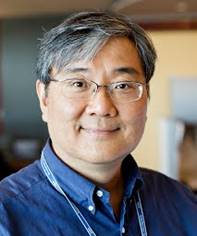
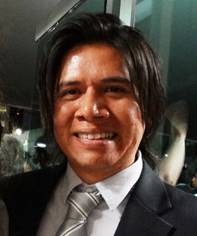
Alfonso Torres Jacome
INAOE
Alfonso Torres Jacome received the Chemical Engineering degree from the Universidad Autónoma de Puebla, the M. Sc. Degree in Electrical Engineering from the University of New Mexico, USA and the Doctoral Degree from INAOE, Mexico. Currently is full time researcher at INAOE, member of the National System of Researchers (level II) and IEEE member. His research interest includes physics and technology of semiconductor devices and deposition and characterization of nanostructured materials. He is author of more than 80 publications in journals and around 120 extended memories at international congresses of his specialty.
Arturo Ponce
Department of Physics and Astronomy, University of Texas at San Antonio, One UTSA Circle, San Antonio, Texas 78249, United States.
Arturo Ponce earned his PhD degree in Materials Science and Engineering at University of Cadiz (Spain) in 2003 and his undergraduate degree in Chemistry at University of Puebla (Mexico). He completed a postdoctoral fellowship in electron crystallography at IFUAM in Mexico and CNRS in France. From 2008 and 2011 Dr. Ponce was Senior Scientist at the Centro de Investigacion en Quimica Aplicada in Saltillo Mexico and the head of the microscopy center. He joined to the University of Texas at San Antonio (UTSA) in 2011 as the Director of the Kleberg Advanced Microscopy Center (KAMC) and now he is an Associate Professor at UTSA and core director of KAMC. Dr. Ponce is author of more than 130 peer-review articles and has been invited to more than 40 talks in different countries. Dr. Ponce has been advisor of multiple master in sciences and doctoral degrees as well as postdoctoral fellows. Dr. Ponce has active collaboration mainly in USA and Mexico. He is member of several associations such as the Microscopy Society of America (MSA) and the Materials Research Society (MRS), member of Mexican National Researchers Level II. He has been organizer of the Advanced Microscopy School series and has been chair of the MRS meeting in Cancun in 2017. His research interests span the structure and physical properties at nanoscale of functional materials using electron microscopy techniques such as: high resolution scanning/transmission electron microscopy, aberration-corrected electron microscopy, electron diffraction, precession electron diffraction, electron holography, focused ion beam, and in situ electron microscopy.
Daniel Durini
INAOE
Daniel Durini is currently a full Research Professor in areas of microelectronics and radiation detection at the National Institute of Astrophysics, Optics and Electronics (INAOE) in Puebla, Mexico. He obtained the B.Sc. degree in Electrical-Electronic Engineering from the National Autonomous University of Mexico (UNAM) in 2002, the M.Sc. degree in area of Microelectronics from the National Institute of Astrophysics, Optics and Electronics in Mexico in 2003, and the Ph.D. degree in area of Microelectronics from the University of Duisburg-Essen in Germany in 2009. He was with the Fraunhofer Institute for Microelectronic Circuits and Systems (IMS) in Duisburg, Germany, between 2004 and end of 2013, where he led during the last four years a group dedicated to developing special CMOS process modules for high-performance photodetection devices, pixel structures and imagers. Prior to his current position, he was with the Central Institute of Engineering, Electronics and Analytics, ZEA-2 – Electronic Systems of the research center Forschungszentrum Jülich in Jülich, Germany, where he headed between 2015 and beginning of 2018 the development of Detector Systems dedicated to scientific applications. He received the Duisburger Sparkasse Award for outstanding Ph.D. thesis in 2009 and two best paper awards. He has authored and co-authored more than 60 technical papers and three book chapters, and holds six patents in the area of CMOS image sensors. He is Member of the IEEE since 2009, and forms part of the National System for Researchers (SNI) in Mexico since 2014.
Mario Moreno
INAOE
Dr. Mario Moreno is currently a full Professor and Researcher at the National Institute for Astrophysics, Optics and Electronics (INAOE). He received the B.S. degree in electronic engineering in 2000, from the faculty of electronics of the Meritorious Autonomous University of Puebla (BUAP), México. The M.S. and Ph.D. degrees in microelectronics were received in 2003 and 2008, respectively from the National Institute of Astrophysics, Optics and Electronics (INAOE), México. He realized a postdoctoral intership from 2008 to 2009 in the Laboratory of Physics on Interfaces and Thin Films at the Ecole Polytechnique CNRS, Palaiseau Cedex, France. His major topics of interest are amorphous and nanocrystalline semiconductors, infrared sensors for thermography applications and silicon solar cells. To date he has authored or coauthored over 90 publications, including articles in journals, conference proceedings and chapters in books.
Israel Mejia
Micro-Electro Mechanical Systems Division, CIDESI
Dr. Israel Mejia, IEEE Senior Member, received his BE in Electrical Engineering with distinctions from the National Polytechnic Institute in Mexico City in 2003. After achieving a Ph.D. from CINVESTAV in 2010, he joined the University of Texas at Dallas (UTD) as a Research Scientist for the department of Materials Science and Engineering. As a key link between academia and industry, Dr. Mejia’s work primarily involves leading research teams in using innovative approaches to design, fabricate and characterize semiconductor devices for implementation in novel, cutting-edge microelectronic applications, integration processes and circuits. His research is supported by The National Science Foundation (NSF), Domestic Nuclear Detection Office (DNDO), Texas Instruments and the CONACyT, Nanoholdings and Microsol Technologies.
Adelmo Ortiz-Conde
Universidad Simón Bolívar, Venezuela
Dr. Adelmo Ortiz-Conde is currently a full Professor at Universidad Simón Bolívar (USB). He received the professional Electronics Engineer degree from Universidad Simón Bolívar (USB), Caracas, Venezuela, and the M.E. and Ph.D. from the University of Florida, Gainesville. From 1979 to 1980, he served as an instructor in the Electronics Department at USB. In 1985, he joined the technical Staff of Bell Laboratories, Reading, PA, where he was engaged in the development of high voltage integrated circuits. Since 1987 he returned to the Electronics Department at USB where he was promoted to Full Professor in 1995. He was on sabbatical leave at Florida International University (FIU), Miami, from September to December 1993, and at University of Central Florida (UCF), Orlando, from January to August 1994, and again from July to December 1998. He also was on sabbatical leave at “Centro de Investigaciones y Estudios Avanzados” (CINVESTAV) National Polytechnic Institute (IPN), Mexico City, Mexico, from October 2000 to February 2001. He has coauthored one textbook, Analysis and Design of MOSFETs: Modeling, Simulation and Parameter Extraction (2012 Springer reprint of the original 1st ed. 1998, http://dx.doi.org/10.1007/978-1-4615-5415-8), over 160 international technical journal and conference articles (including 15 invited review articles). His present research interests include the modeling and parameter extraction of semiconductor devices. Dr. Ortiz-Conde is an EDS Distinguished Lecturer and the Chair of IEEE’s CAS/ED Venezuelan Chapter. He is editor of IEEE Electron Device Letters in the area of Silicon Devices and Technology. He was the Region 9 Editor of IEEE EDS Newsletter from 2000 to 2005. He is a Member of the Editorial Advisory Board of various technical journals: Microelectronics and Reliability, “Universidad Ciencia y Tecnología” and “Revista Ingeniería UC”. He regularly serves as reviewer of several international journals and he was the General Chairperson of the first IEEE International Caribbean Conference on Devices, Circuits, and Systems (ICCDCS) in 1995, Technical Chairperson of the second, fourth and fifth editions of this conference in 1998, 2002 and 2004 respectively, and the Chairperson of the Steering Committee in 2000.
Yeonghun Lee
Department of Materials Science and Engineering, The University of Texas at Dallas, USA
Dr. Yeonghun Lee received his BS in Physics at the University of Tsukuba, Japan in 2008, and earned his master’s degree and PhD in Electronics and Applied Physics at Tokyo Institute of Technology, Japan in 2009 and 2012, respectively. After completing the PhD, he joined SK hynix, South Korea. Until this period, his research mainly focused on modeling and characterization of nanoscale devices, such as nanowire transistors, high-voltage transistors, 3D NAND flash, and novel memories. After the Five-and-a-half-year industrial experience, he has joined Dr. Kyeongjae Cho’s group at the University of Texas at Dallas, USA since 2017, and he is currently pursuing another PhD in Material Science and Engineering. His device modeling expertise has been extended to electronic structure analysis and excited-state dynamics simulation using not only density functional theory but also time-dependent density functional theory.
Roberto S. Murphy
INAOE
Roberto S. Murphy (M´92, SM´02) received his B.Sc. degree in Physics from St. John’s University, Minnesota, and got his M.Sc. and Ph.D. degrees from the National Institute for Research on Astrophysics, Optics and Electronics (INAOE), in Tonantzintla, Puebla, México. He has been a researcher at INAOE since 1988. Since then, he has presented over 100 talks at scientific conferences, directed nine Ph.D. theses, 15 M.Sc. and 2 B.Sc. theses, published more than 140 articles in scientific journals, conference proceedings and newspapers, and is the author of a textbook on Electromagnetic Theory. He is currently a senior researcher with the Microelectronics Laboratory. Dr. Murphy’s research interests are the physics, modeling and characterization of the MOS Transistor and passive components for high frequency applications, especially for CMOS wireless circuits, and antenna design. He is a Senior Member of IEEE, a Distinguished Lecturer of the Electron Devices Society, the President of the Iberoamerican Science and Technology Education Consortium (ISTEC), a member of the Mexican Academy of Sciences, and a member of the Mexican National System of Researchers (SNI).
Kin-Leong Pey
Engineering Product Development, Singapore University of Technology and Design, Singapore
Kin-Leong Pey is currently the Associate Provost (Education, SUTD Academy and Digital Learning) and a Professor at the Singapore University of Technology and Design. Kin-Leong was appointed by the Singapore Ministry of Education to take up the current position in setting up SUTD in January 2010. He was previously the Head of the Microelectronics Division, Director of the Nanyang NanoFabrication Center and Director of the Microelectronic Centre in the School of EEE at the Nanyang Technological University. A senior member of IEEE and an IEEE Electron Devices Society Distinguished Lecturer, Kin-Leong was the General Chair of IPFA2001, Singapore and the co-General Chair of IPFA2004, Taiwan. Kin Leong is a Fellow of the ASEAN Academy of Engineering & Technology. He is an Editor of IEEE Transactions on Devices and Materials Reliability. Kin-Leong has published more than 175 international refereed publications, 185 technical papers at international meetings or conferences and 3 book chapters, and holds 38 US patents. Kin-Leong has supervised 32 PhD and more than 15 Master theses.
Alok Ranjan
Engineering Product Development, Singapore University of Technology and Design, Singapore
Alok Ranjan is a final year PhD candidate in Engineering Product Development Pillar at Singapore University of Technology and Design (SUTD). Alok is also affiliated as a full-time researcher to Institute of Materials Research and Engineering (IMRE) Division in Agency for Science Technology and Research (A*STAR), Singapore. Alok’s research work focuses on the nanoscale electrical characterization of defects in ultra-thin gate dielectrics and emerging 2D layered dielectrics using scanning probe microscopy techniques, namely conductive-AFM and STM working in ultra-high vacuum conditions.
Joel Molina
INAOE
Dr. Joel Molina is currently a full Professor and Researcher at the National Institute for Astrophysics, Optics and Electronics (INAOE). He received his B.S.E.E. (magna cum laude) from the Universidad Veracruzana in Poza Rica–Veracruz, Mexico, a M.Sc. degree in Microelectronics from INAOE in Tonantzintla–Puebla, Mexico, and the Ph.D. in Advanced Applied Electronics from Tokyo Institute of Technology in Tokyo, Japan. He is member of the National System of Researchers (level I) as well as an IEEE Senior Member. His research interests include physics and technology of nanoscaled CMOS devices, non-volatile memory devices, solid-state sensors and MEMS, as well as the process integration of ultra-thin metal and high dielectric constant materials for application in advanced logic, memory, sensing and photoactive technologies. From these topics, he has authored or coauthored over 80 peer-reviewed research publications.
Seán Barry
Carleton University, Canada
Seán Barry is a Professor at Carleton University (Ottawa, Canada), where he works on precursor compounds for atomic layer deposition (ALD). He was trained in synthetic inorganic chemistry (PhD, University of Ottawa, 1996), and spent three years working on chemical vapour deposition (CVD) and ALD precursors in the group of Roy Gordon (PDF, Harvard University, 1998 – 2000, 2002 -2003). He started in Carleton University in 2003 working on guanidinates of the group 13 metals (Al, Ga, In), and has recently studied guanidinates, iminopyrrolidinates and carbenes of the coinage metals (Cu, Ag, Au) for depositing thin films of these metals. His group works mainly on the mechanisms of thermal decomposition and thin film deposition and have invented several novel characterization methods to better understand mechanism. He was previously the founder and Senior Scientific Advisor for Precision Molecular Design, a start-up company with GreenCentre Canada to commercialize precursors for atomic layer deposition. Seán is also the director of the Facility for Nanoscience, Surfaces, and Sensor Interfaces (FANSSI), which was commissioned in 2015 by a $1.9M Canadian infrastructure grant to study surface chemistry and ALD. He has served as a scientific advisor for the AVS ALD, Baltic ALD and EuroCVD meetings, and is presently a co-organiser of the joint EuroCVD/Baltic ALD meeting in Linköping, Sweden in 2017. He also routinely organizes an “ALD and Surface Chemistry” symposium at the Canadian Society for Chemistry (CSC) conferences and was the co-chair of the Surface Science division of the 2015 CSC conference in Ottawa. In 2012, he was awarded a Marie Curie Fellowship as part of the EU-funded European Research Training Network ENHANCE to undertake metal ALD at the University of Helsinki, and in 2015 he was awarded a $295k Vinnova VINNMER Mobility grant to undertake CVD/ALD research in Sweden.
Edmundo A. Gutiérrez-D
INAOE
Dr. Edmundo A. Gutiérrez-D. received his PhD from the Catholic University of Leuven (KUL), Belgium in 1993, with the thesis entitled “Electrical performance of sub micron CMOS technologies from 300 K down to 4.2K”. From 1988 to 1993 was a research assistant at the Interuniversity Microelectronics Center (IMEC) in Leuven, Belgium. In 1993 joined as a researcher the Department of Electronics of INAOE. In 1996 spent one year as invited Professor at the Simon Fraser University in Vancouver, Canada. In 1996 he also spent two months at the University of Sao Paulo, Brazil as a Summer PhD lecturer. From 1999 to 2000 was appointed Head of the INAOE Department of Electronics. From 2000 to 2002 spent two years as Design Manager of the Motorola Mexico Center for Semiconductor Technology in Puebla City. In 2002 he was also invited Professor at the Technical University of Vienna, Austria. From 2002 to 2005 rejoined INAOE as Professor of the Department of Electronics. From 2005 to 2007 was the Research Manager of the Intel Systems Research Center Mexico in Guadalajara City.
Dr. Gutiérrez is author of the books “Low Temperature Electronics, Physics, Devices, Circuits and Applications” (Academic Press, 2000), and “Nano-Scaled Semiconductor Devices, Physics, Modelling, Characterisation, and Societal Impact”, IET Press, 2016. He has supervised 7 M.Sc. and 13 PhD theses, and has published more than 120 scientific papers and conferences in the field of physics of semiconductor materials and devices, including MOS transistors, temperature, optical, and magnetic sensors.
Prof. Gutiérrez-D. is Associate Editor of Electron Device Letters.
Manuel Quevedo
Department of Materials Science and Engineering, University of Texas at Dallas
Prof. Manuel Quevedo received his Ph.D. from the University of North Texas in 2002 and joined Texas Instruments' R&D Department where he developed high tech materials and devices. While at Texas Instruments, Dr. Quevedo was appointed Texas Instruments assignee at International Sematech where he worked with other companies (Intel, IBM, Motorola, Samsung, AMD, etc.) to continue developing alternate materials for nano devices. In 2010 Dr. Quevedo joined the Materials Science and Engineering Faculty at the University of Texas at Dallas as Associate Professor and was promoted to tenured full professor in 2014. Dr. Quevedo is also member of the scientific board of Nanoholdings LLC and CTO of Military Tech. Prof. Quevedo has published more than 200 papers, 2 book chapters, and holds 14 US patents with 4 more pending. His current research includes nanostructured materials and devices for flexible electronics, large area sensors and energy harvesting. Prof. Quevedo’s research is supported by the The National Science Foundation (NSF), The Air Force Office of Sponsored Research (AFOSR), Defense Advanced Research Projects (DARPA), Domestic Nuclear Detection Office (DNDO), Conacyt, and NanoHoldings LLC.
Firat Güder
Imperial College London, Center for Plastic Electronics
Dr. Firat Güder is an assistant professor in the Department of Bioengineering at Imperial College London. Prior to his appointment at Imperial, he was a research fellow in the group of Prof. George M. Whitesides at Harvard University in the Department of Chemistry and Chemical Biology. He has a PhD in Microsytems Engineering (summa cum laude) from the University of Freiburg, Germany, and a BSc in Computer Engineering (First Division) from the University of New Brunswick (UNB), Canada. Over the years, his achievements have been recognized through numerous awards such the UNB Class of 1939 Scholarship, N. Myles Brown Scholarship, Governor Thomas Carleton Scholarship, KU Leuven International Scholarship, Furtwangen University MTM Scholarship, German Research Foundation International Research Fellowship, Tom West Analytical Fellowship and most recently 2018 UNB Young Alumni Achievement Award. Firat and his team work in the interface of material science, electronics, chemistry and biology. His group focuses on the development of new materials, fabrication of low-cost sensors/actuators with the eventual aim of transforming the devices developed into fully functional portable systems for use in healthcare, agricultural and food sciences. In addition to his peer-reviewed papers, he is an inventor of multiple patents, many of which have been licensed to commercial companies. His research at Imperial is sponsored by the Wellcome Trust, EPSRC, BBSRC, GE Healthcare, The Royal Society, Analytical Chemistry Trust Fund, AWE, Research England and others. For more information on Firat and his research activities, please visit his website at www.guderesearch.com
Jiyoung Kim
Professor of Materials Science and Engineering, The University of Texas at Dallas
Jiyoung Kim is a professor of Materials Science and Engineering and affiliated at Depts. of Electrical and Mechanical Engineering at the University of Texas at Dallas. He received the B.S. (1986) and the M.S. (1988) at Seoul National University, and the Ph.D. (1994) at the University of Texas at Austin. He worked as an integration engineer in worldwide productization at Texas Instrument, Inc (Dallas, TX) from 1994 to 1996. From 1996 to 2005 he had been a faculty member of School of Advanced Materials Engineering at Kookmin University, (Seoul, Korea). In 2005 Dr. Kim joined as an associate professor of Electrical Engineering at the University of Texas at Dallas and was promoted to a full professor in 2013. He is an author or coauthor of more than 280 peer reviewed journal and proceeding papers. His H-index and number of citations are 40 and about 6,000 by google scholar, respectively. He has served conference/symposium chair of more than 10 times (including 2010 IEEE-ISAGST, 2014 AVSALD, 2011, 2012 and 2017 symposium on functional nanomaterials in TMS). His research interests are in the area of future semiconductor technology for logic, memory, power, RF and analog devices including advanced ALD applications, novel functional materials and 2D materials.
